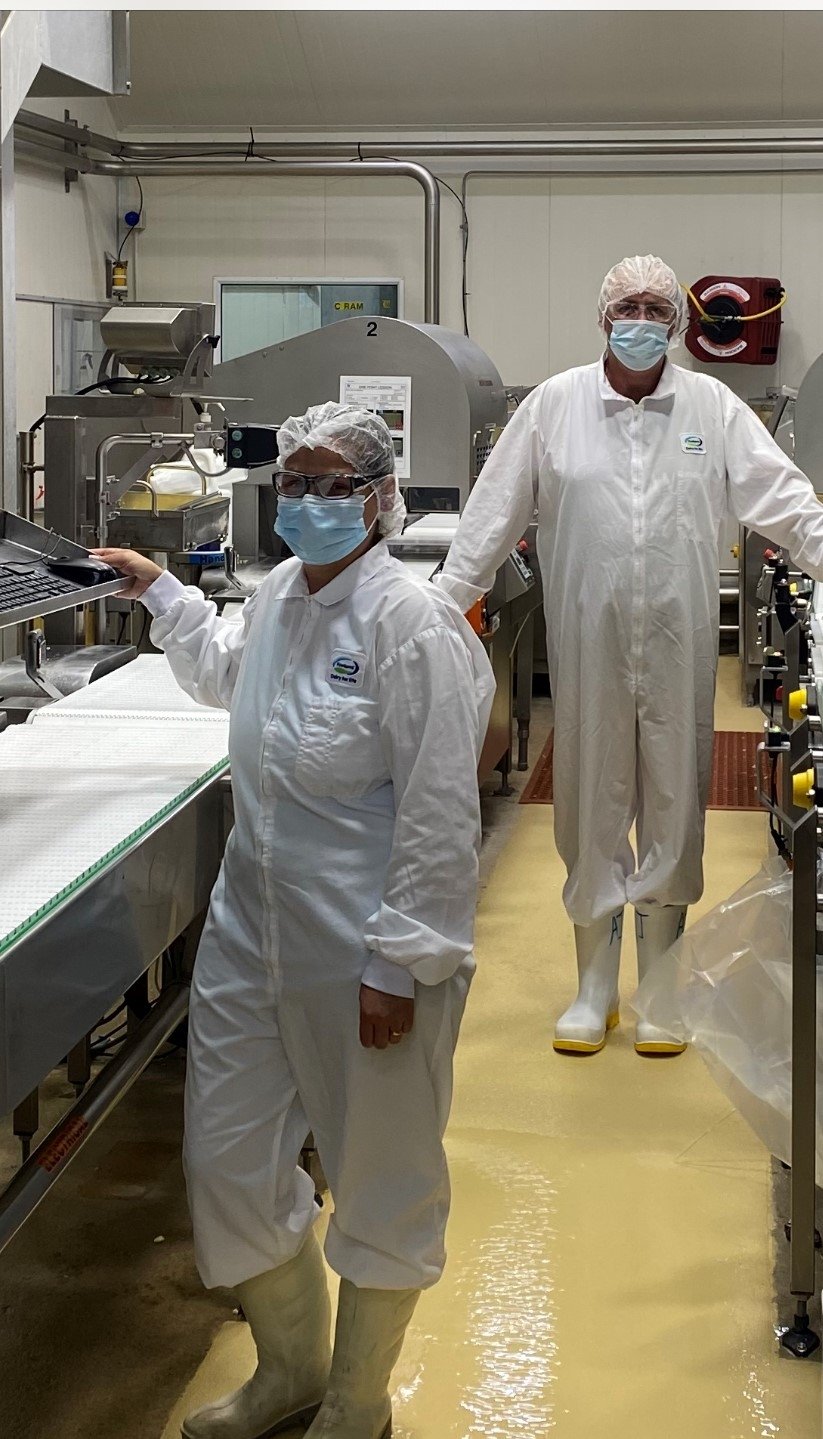
Last week, the co-operative increased and narrowed its forecast range to $7.90-$8.90kg/ms, from $7.25-$8.75.
The midpoint of the range, which farmers are paid off, has increased to $8.40 from $8.
At a $8.40 midpoint, it would equal the highest farmgate milk price paid by the co-operative and would see almost $13billion flow into regional New Zealand through milk price payments this season.
Fonterra Stirling site manager Morgan Watt said the milk price was looking good.
"We are pretty proud of that as a team."
The Southern plants in Stirling and Edendale hit peak processing late last week.
About 80 million litres of milk was processed a day in New Zealand in peak season, he said.
The Southern sites were processing more than 13.3million litres of milk a day.
"It’s quite a chunk of that [national] milk pool."
The peak volumes were weather-dependent but were expected to continue in Edendale until the end of the year but Stirling would continue for longer.
"At Stirling we process 1.8million litres a day and we’ll be at that until the end of May — it doesn’t go away for us — it just keeps on coming."
The Stirling plant operated 24/7 for nine months of the year and employed about 110 staff including tanker drivers.
More than 600 staff were employed at Edendale.
The staff were in their third season of taking Covid-19 procedures and precautions to continue operating and processing milk.
"We are doing pretty well — the cows don’t know there is Covid out there and they keep on processing."
The Covid-19 measures went beyond what the Government mandated, he said.
"We are pretty cautious."
Measures include staff wearing masks, allowing only essential workers on site including the closure of the shop on site selling cheese to the public.
"It hasn’t been opened for a couple of years now, which is a shame because it services the community but it is what it is, right?."
Speaking to the Otago Daily Times on the day it was announced there were positive Covid-19 cases in Christchurch, he said it was too soon to tell how it might impact the plant but they were prepared.
"We will get to a point where we really knuckle down and step up our controls, which we’ve done before."
Comments
This is great news for the industry but we might now be entering the twilight years for animal based ag. The Israeli Government Backs Cell-Cultured Protein To Fight Climate Crisis - President Hertzog announced the government ‘officially’ embraces alternative protein as part of its National Climate Strategy.
In a statement, Hertzog announced: “It is imperative that we take advantage of the international stage in Glasgow to present the extensive Israeli climate tech and solutions we can offer globally in climate innovation and development of alternatives to animal protein.
“We certainly have much to be proud of.”
Minister of environmental protection, Tamar Zandberg stressed the importance of ‘finding solutions’ especially following the COVID-19 pandemic.
Zandberg added: “I ate chicken for the first time in seven years, it was cultivated chicken. This technology will not only change Israel but will contribute to the whole world.”











